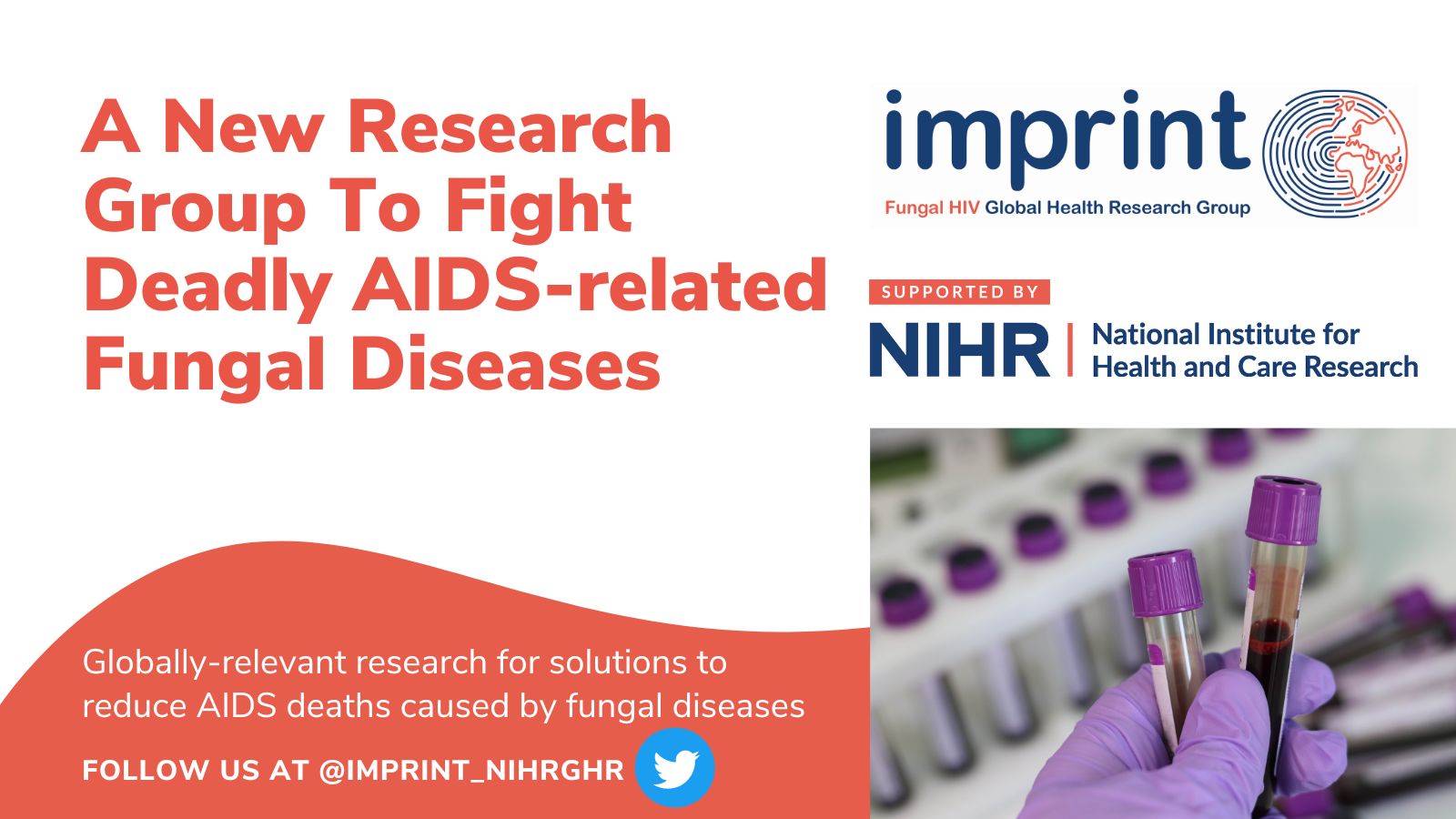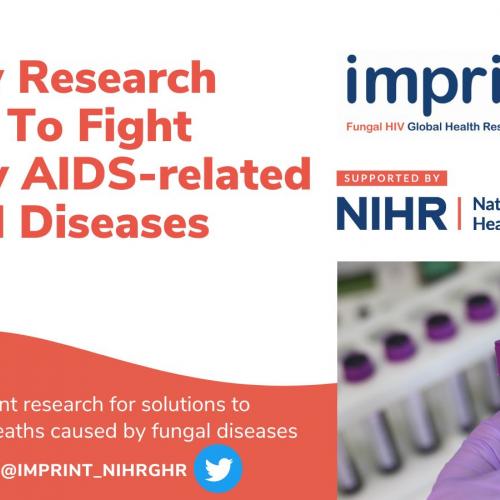
Serious fungal infections are a global threat to human health. Many of these severe infections occur in people living with HIV. Four HIV-associated fungal infections - cryptococcal meningitis, histoplasmosis, Pneumocystis pneumonia (PCP) and talaromycosis - are responsible for over 20% of all AIDS-related deaths globally. However, these diseases have been neglected and medical mycology (the study of fungal diseases in humans) is underfunded receiving <1.5% of funds allocated to infectious diseases research globally. Research into better tests for diagnosis and better treatment of fungal infections and use of these improved tests and treatments in routine healthcare are essential to reduce deaths and disability. The World Health Organization (WHO) has recognised that AIDS deaths cannot be reduced until the major fungal complications of advanced HIV disease are effectively addressed; in its 2022 Fungal Pathogens Priority List, the WHO has flagged Cryptococcus, Histoplasma, Pneumocystis and Talaromyces as priority diseases for public health intervention, research and development.
The NIHR has funded a new Global Health Research Group on HIV-associated Fungal Infections through the London School of Hygiene and Tropical Medicine as the contracting organisation. Jointly led by Professor Joe Jarvis and Professor Nelesh Govender, the group is named IMPRINT, an acronym for International Mycoses Prevention, Research, Implementation, Networks and Training. The group aims to improve the diagnosis and treatment of the four major HIV-associated fungal infections of public health importance and to ensure that these improvements are made widely available to populations most commonly affected in Africa (Democratic Republic of Congo, Mozambique, Guinea, Malawi, Botswana, South Africa), and South East Asia (Vietnam). The group brings together leading academic researchers, clinical and public health leaders, non-governmental organisations including Médecins Sans Frontières and the Drugs for Neglected Diseases initiative, and community and patient representatives. The partnerships will be equitable, with leadership shared across six work packages delivered from 2022 through to 2026, insights from qualitative research and guidance from a steering committee and community advisory board. In addition to the direct impact of the work that will be undertaken, the group will liaise with national, regional, and international bodies (ministries of health, major NGOs, UNITAID, WHO, Africa CDC) in order to effectively scale up the results and impact of its work.
Focused on people living with advanced HIV disease (or AIDS), the group’s objectives are:
- TREATMENT: To implement new, short-course treatments for cryptococcal meningitis in routine care in African and South East Asian countries, building on the results of two landmark trials, ACTA and AMBITION-cm. These trials were completed by partners in the consortium and both demonstrated improved survival with regimens that are practical and affordable in resource-limited settings. And to support early work in talaromycosis using a single high-dose liposomal amphotericin B treatment approach used for cryptococcal meningitis in the AMBITION-cm trial, and to lay the foundations for future studies in histoplasmosis.
- PREVENTION: To improve the screen-and-treat strategy to identify and treat early cryptococcal disease, before it becomes clinically apparent, in Africa and South East Asia. New tests will be evaluated for cryptococcal antigen screening, and we will assess a slow-release formulation of the oral antifungal medicine flucytosine within the ongoing EFFECT trial. Screening will be evaluated to prevent talaromycosis and histoplasmosis in South East Asia and histoplasmosis and emergomycosis in Africa.
- HEALTH ECONOMICS: To generate essential economic data to support the different screening and treatment approaches being investigated for cryptococcosis, histoplasmosis and talaromycosis. These individual and, if appropriate, combined analyses will be crucial evidence in the group’s efforts to effect the policy changes needed to reduce deaths from HIV-associated fungal infections.
- DIAGNOSTICS: PCP is notoriously difficult to diagnose. We will initiate a programme of laboratory-based work on PCP, enrolling a group of patients, and using their biological samples to develop and test new diagnostic tests for PCP.
- TRAINING: As this is integral to the work proposed, to support a comprehensive training and capacity strengthening programme in clinical epidemiology, health economics and/or public health, and laboratory research. Training will be enabled by a recent strategic UK-African partnership and will build on extensive experience of training and capacity strengthening within existing multinational projects. The group’s goal is to train and mentor clinicians and researchers who will help drive and develop this partnership beyond the 4-year grant period.
- COMMUNITY ENGAGEMENT: To ensure that the voices of people living with advanced HIV disease and community representatives are meaningfully included and heard across the entire scope of work, the group will develop strategies and tools to increase patient health literacy around HIV-associated fungal infections, collect qualitative data to learn from the experience of patients with HIV-associated fungal infections and facilitate meaningful engagement through a community advisory board.
About The National Institute for Health and Care Research (NIHR)
The mission of the National Institute for Health and Care Research (NIHR) is to improve the health and wealth of the nation through research. We do this by:
- Funding high quality, timely research that benefits the NHS, public health and social care;
- Investing in world-class expertise, facilities and a skilled delivery workforce to translate discoveries into improved treatments and services;
- Partnering with patients, service users, carers and communities, improving the relevance, quality and impact of our research;
- Attracting, training and supporting the best researchers to tackle complex health and social care challenges;
- Collaborating with other public funders, charities and industry to help shape a cohesive and globally competitive research system;
- Funding applied global health research and training to meet the needs of the poorest people in low and middle income countries.
- NIHR is funded by the Department of Health and Social Care. Its work in low and middle income countries (LMICs) is principally funded through UK Aid from the UK government.





